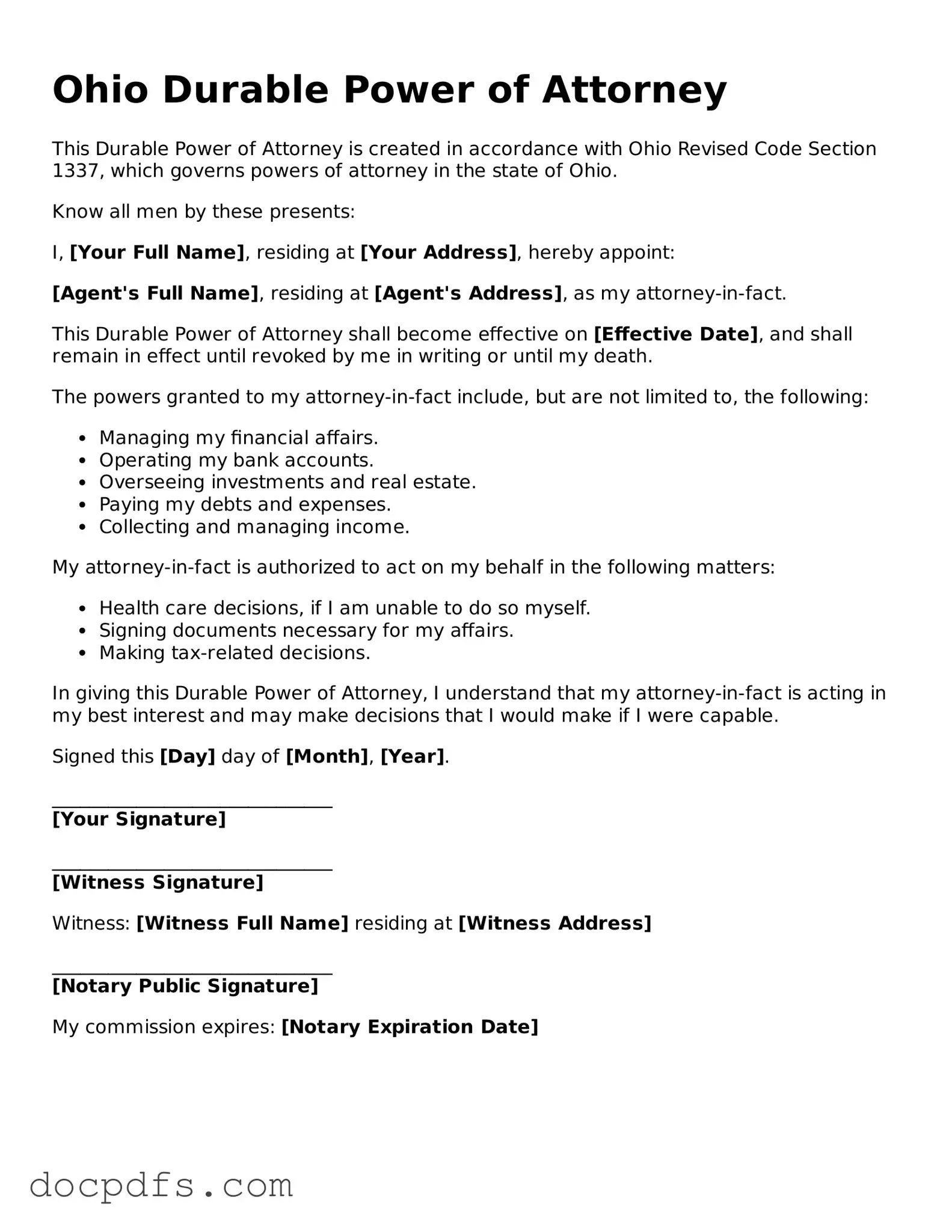What is a Durable Power of Attorney in Ohio?
A Durable Power of Attorney (DPOA) is a legal document that allows you to appoint someone else to make decisions on your behalf. This authority remains in effect even if you become incapacitated. In Ohio, a DPOA can cover financial matters, healthcare decisions, or both, depending on how you choose to structure it. It’s a vital tool for ensuring that your wishes are honored when you cannot express them yourself.
Who can be appointed as an agent under a Durable Power of Attorney?
In Ohio, you can appoint almost anyone as your agent, as long as they are at least 18 years old and mentally competent. This could be a family member, a close friend, or a trusted advisor. It’s essential to choose someone who understands your values and will act in your best interests. You should also discuss your wishes with them beforehand to ensure they are comfortable taking on this responsibility.
How does a Durable Power of Attorney become effective?
A Durable Power of Attorney can become effective immediately upon signing or can be set to activate only when you become incapacitated. If you choose the latter option, you may need to provide medical documentation to confirm your incapacity before your agent can act on your behalf. It’s crucial to clearly outline when the authority begins in the document to avoid any confusion later on.
Can I revoke or change my Durable Power of Attorney?
Yes, you can revoke or change your Durable Power of Attorney at any time, as long as you are mentally competent. To revoke it, you should create a new document stating that the previous DPOA is no longer valid. It’s also a good idea to inform your agent and any institutions that may have a copy of the original document. Keeping your records up to date ensures that your wishes are respected.
What happens if I don’t have a Durable Power of Attorney?
If you do not have a Durable Power of Attorney and become incapacitated, a court may need to appoint a guardian to make decisions on your behalf. This process can be time-consuming, costly, and may not reflect your personal wishes. By establishing a DPOA, you maintain control over who makes decisions for you and how those decisions are made.
Is it necessary to have a lawyer to create a Durable Power of Attorney in Ohio?
While it is not legally required to have a lawyer to create a Durable Power of Attorney in Ohio, consulting with one can be beneficial. A lawyer can help ensure that the document complies with state laws and that your wishes are clearly articulated. They can also provide guidance on selecting an appropriate agent and discussing the scope of authority you wish to grant.

